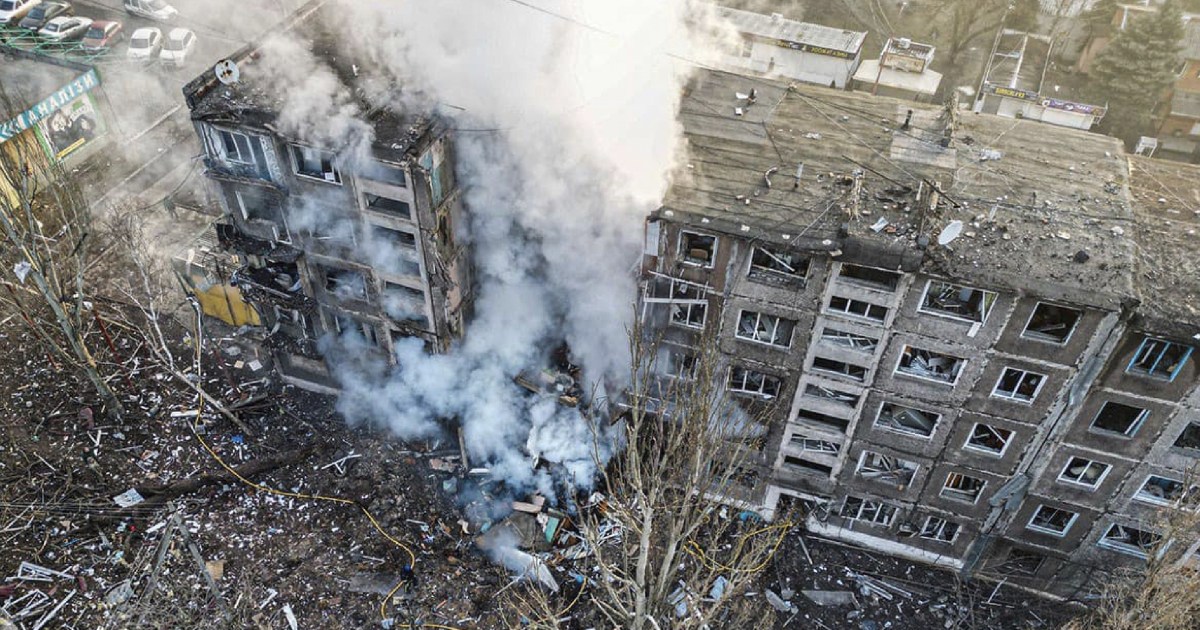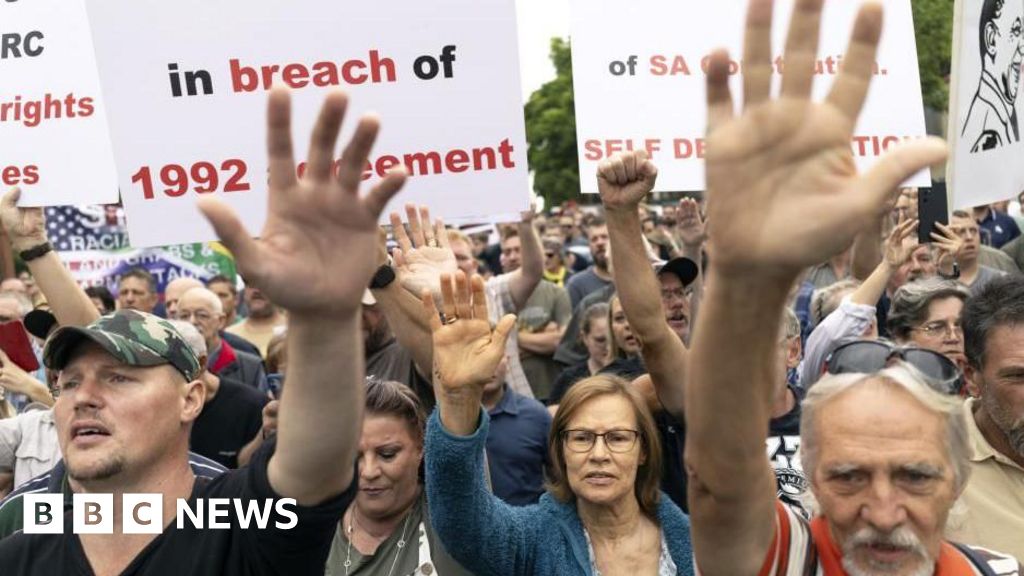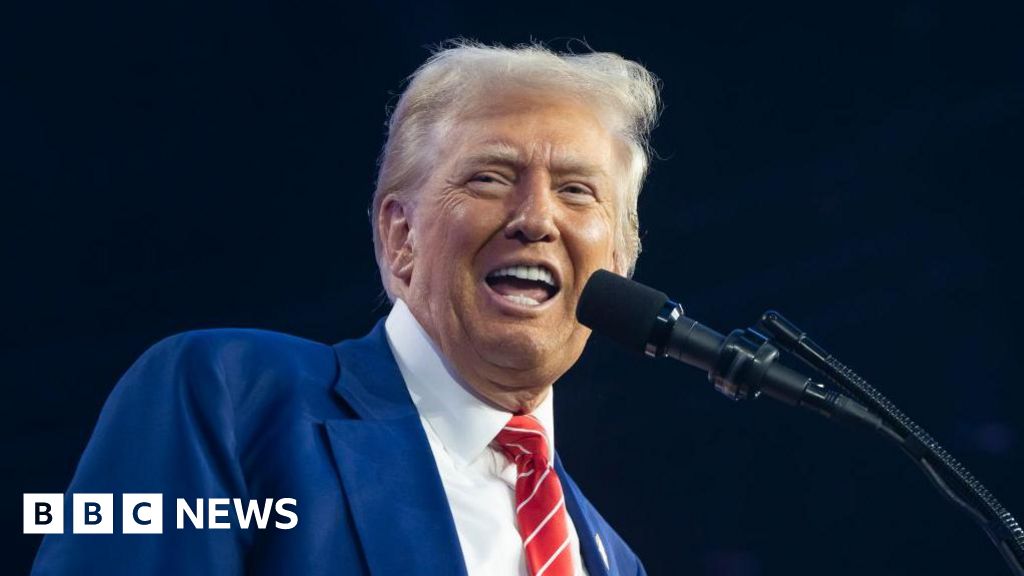Hungary’s Orban meets China’s Xi in mission to end Russia-Ukraine war | Politics News
Chinese President Xi Jinping has urged world powers to help Russia and Ukraine resume direct dialogue as he held talks with Hungary’s Prime Minister Viktor Orban, who was in Beijing on a visit the European leader has branded as a “peace mission”.
Xi and Orban’s meeting in the Chinese capital on Tuesday came after the Hungarian leader made similar trips to Russia and Ukraine last week to discuss prospects for a peaceful settlement in the conflict, now in its third year.
Hungary assumed the rotating presidency of the European Union this month and Orban has since embarked on a peace mission, which, however, lacks the endorsement of other European nations.
“China is a key power in creating the conditions for peace in the Russia-Ukraine war,” Orban wrote on the social media platform X. “This is why I came to meet with President Xi in Beijing, just two months after his official visit to Budapest.”
Orban is widely seen as having the warmest relations with Xi and Putin among European leaders. His visit to Moscow last week drew condemnation from Ukraine and EU officials, who insisted Orban was not acting on behalf of the whole European bloc.
Their rebuke failed to deter Orban from extending a similar visit to Beijing, which he called “Peace mission 3.0” in a picture posted on X.
While hosting Orban, Xi called on Russia and Ukraine to cease fire and on other major powers to create an environment conducive to talks. Only when all major powers project “positive energy rather than negative energy” can a ceasefire occur, Xi said, according to state broadcaster CCTV.
“It is in the interests of all parties to seek a political solution through an early ceasefire,” he added.
For his part, Orban described China as a stabilising force amid global turbulence and praised its “constructive and important” peace initiatives. These include a Chinese six-point peace plan, which it issued with Brazil in May.
China says it is neutral in the conflict, though in practice, it supports Moscow through frequent state visits, growing trade and joint military drills.
China-Hungary ties
Russia said it appreciated Orban’s efforts to clarify positions in resolving the conflict, while Ukraine’s President Volodymyr Zelenskyy said the Hungarian leader could not act as a mediator, a task he said could only be undertaken by major world powers.
“Are there many such countries around the world? Not many. I believe the US and China are such countries. And the EU, not one country, but the whole EU,” Zelenskyy said during a visit to Poland.
Ukraine remains open to proposals from other countries on how to shape the path to peace, but they should align with the Ukrainian vision, in particular a 10-point peace plan, Zelenskyy added.
Ukraine hopes to hold a second international summit to consider its proposals for peace later this year. China, which has close ties to Moscow, did not attend the first meeting in June.
The United States, meanwhile, said it was concerned by Orban’s meeting with Xi. White House National Security Council spokesman John Kirby said the trip “certainly doesn’t seem to be productive in terms of trying to get things done in Ukraine”, adding: “It’s concerning”.
Hungary under Orban has built substantial political and economic ties with China. Orban hosted Xi in Hungary only two months ago as part of a three-country European tour that also included stops in France and Serbia, which, unlike the other two, is not a member of the EU or NATO.
During the trip, China upgraded its ties with Hungary to an “all-weather, comprehensive strategic partnership,” one of its highest designations for foreign relations which, in addition to Hungary, only applies only to Belarus, Pakistan and Venezuela.
The European nation hosts a number of Chinese electric vehicle (EV) battery facilities, and in December announced that Chinese EV manufacturing giant BYD will open its first European EV production factory in the south of the country.
The Hungarian prime minister broadly opposes Western military aid to Ukraine and has blocked, delayed or watered down EU efforts to assist Kyiv and impose sanctions on Moscow over its invasion. Orban has long argued for a cessation of hostilities in Ukraine but without outlining what that might mean for the country’s territorial integrity or future security.
That posture has frustrated Hungary’s EU and NATO allies who have denounced Russia’s invasion as a breach of international law and a threat to the security of Eastern Europe.
“With Europe trying to increasingly speak with one voice in its relations to China and Russia, Orban’s unannounced and uncoordinated trips are not helping in signalling or creating a unified European Union with regard to EU-China relations,” said Eva Seiwert, a foreign policy and security expert with the Mercator Institute for China Studies in Berlin.
Orban’s proposals for resolving the war largely correspond with Putin’s interests, Seiwert added, though the Hungarian prime minister might prove helpful in organising a peace conference in the future.
Standing alongside Orban last week in Moscow, Putin declared that Russia would not accept any ceasefire or temporary break in hostilities that would allow Ukraine “to recoup losses, regroup and rearm”.
Putin repeated his demand that Ukraine withdraw its troops from the four Ukrainian regions that Moscow partially occupies and claims to have annexed in 2022 as a condition for any prospective peace talks. Ukraine and its Western allies have rejected that demand as it is asking Kyiv to withdraw from its own territory.
China, meanwhile, has spread its influence in Central Asia and Eastern Europe in recent years beyond its “no limits” partnership with Moscow. Over the weekend, China held “anti-terror” military drills with Belarus – a key ally of Russia – near the border with Poland. The drills came after, last week, Belarus joined a regional security organisation led by China and Russia.
Orban will next head to Washington, DC, where NATO leaders are holding a summit to discuss ways to assure Ukraine of the alliance’s continued support.
“Next stop: Washington,” Orban posted on his social media account on Monday.
Check out our Latest News and Follow us at Facebook
Original Source







